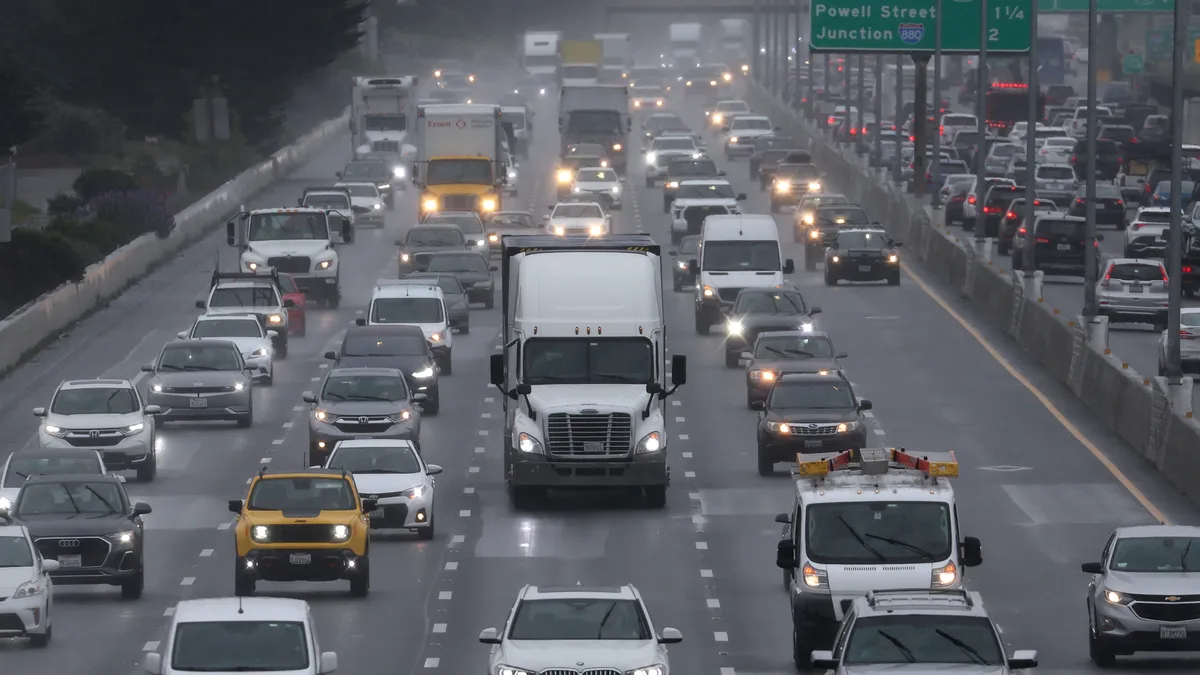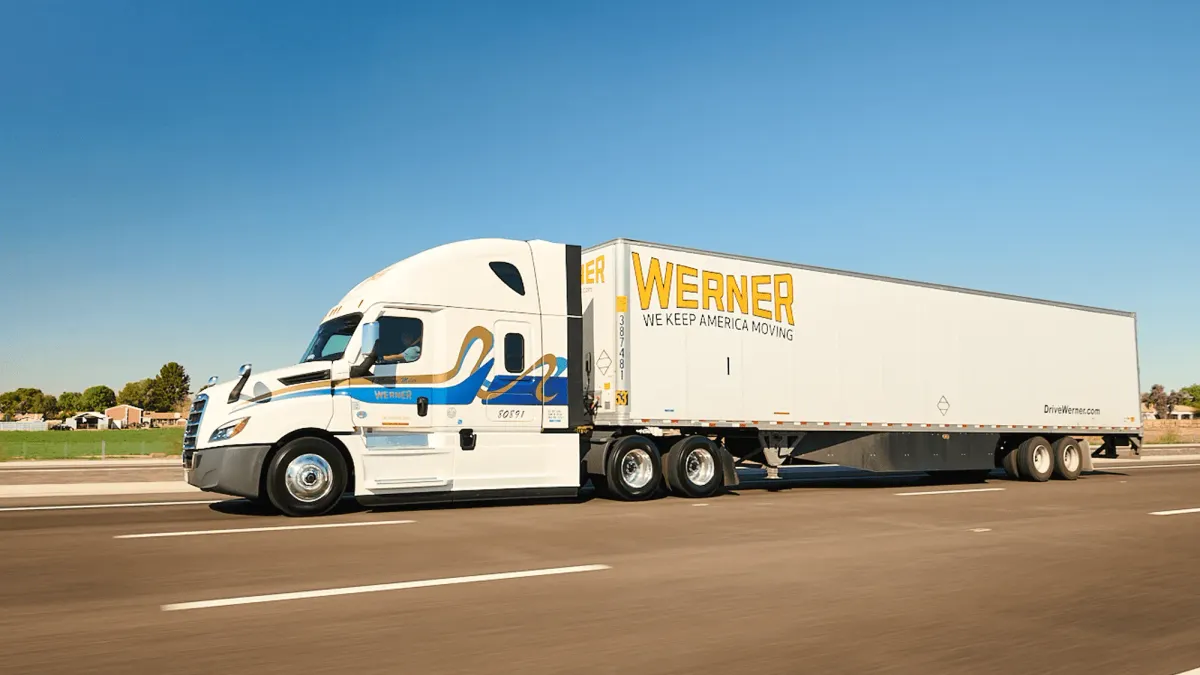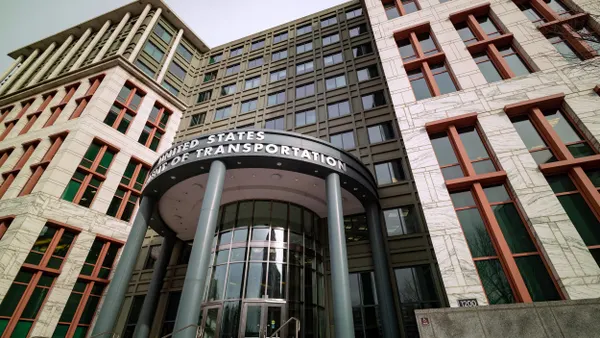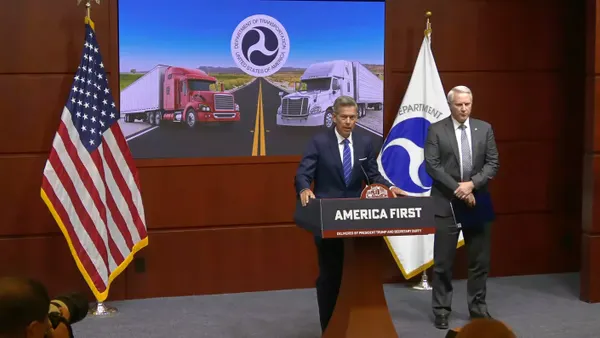Dive Brief:
- The California State Assembly last week approved a bill by a vote of 63-4 that would require legislative approval to remove safety operators from autonomous vehicles weighing 10,001 pounds or more.
- The measure seeks to add more oversight to the state’s Department of Motor Vehicles as advocates voice concerns over road safety and union driver jobs.
- The follow-up attempt was essentially the same as a previous version, which Gov. Gavin Newsom vetoed in September 2023. The new bill now goes before the California Senate for review.
Dive Insight:
The state still bans the testing and deployment of medium- and heavy-duty autonomous vehicles. The issue came into further focus when the DMV held workshops last year that discussed heavy-duty AV testing to help inform potential rulemaking.
The reintroduced bill threatens to delay the removal of drivers from medium- and heavy-duty AVs to well beyond 2030 in the state. Before driverless operations could occur for vehicles weighing 10,001 pounds or more, the state DMV would have to issue a report on the technology, a legislative oversight hearing would have to occur, and the California State Legislature and governor would have to approve the change.
While driverless passenger car operations have been occurring in the California, problems have surfaced, such as crashes that included an autonomous car dragging a pedestrian approximately 20 feet on Oct 2, 2023, as well as the DMV suspending robotaxi company Cruise’s AV permit as of Oct. 24, 2023. The company, majority owned by General Motors, later acknowledged its deficiencies, made management changes and adjusted its safety governance.
The relentless push by California legislators regarding a safety operator bill is not the only effort that could add layers of AV regulation in the state, whose roadways total more mileage than any other U.S. state except for Texas. Another bill would allow cities with 250,000 people or more to create permitting programs for AV services and restrict those vehicles’ hours of operation. Smaller cities bordering those municipalities would have to essentially follow those larger areas’ ordinances, too.
“The bill would effectively shut down AVs in California by allowing local governments to create their own ordinances, creating a barrier to entry before an approved AV service can enter the municipality,” the Autonomous Vehicle Industry Association said in a statement. That bill, which the California Senate passed last week, now heads to the Assembly.










